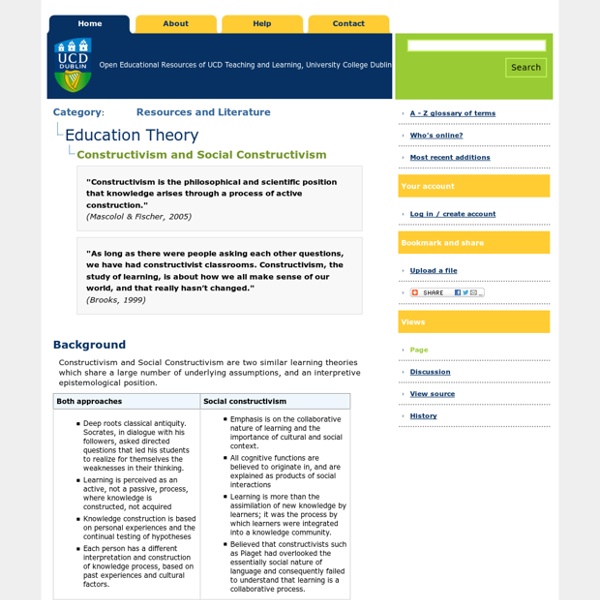Conducting a Class (Interactive Delivery)
Lectures are useful to convey knowledge at the basic levels of Bloom’s revised taxonomy i.e. remembering and understanding. Lectures can show how experts in a field think, how they approach questions, and how they try to solve a problem. Yet in traditional lectures, students are mostly passive and their attention span decreases significantly after 15 to 20 minutes. Traditional lecturing may not be suitable for higher levels of learning i.e. apply, analyse, evaluate, and create. Research in teaching and learning show that students learn best by engaging in active learning rather than passive learning activities.
Learning Theories within Coaching Process
Authors: P. Fazel Abstract: These days we face with so many advertisements in magazines, those mentioned coaching is pragmatic specialties which help people make change in their lives. Up to know Specialty coaches are not necessarily therapists, consultants or psychologist, thus they may not know psychological theories.
Zone of Proximal Development and Scaffolding
The Zone of Proximal Development and Scaffolding By Dr. Saul McLeod, updated 2019
Feedback for Learning: Make Time to Save Time
Focused feedback from a trusted teacher or partner helps students learn. By Dylan Wiliam What Dance Teachers Know At Dreyfoos School of the Arts in West Palm Beach, a high school jazz dance class is in session. The teacher has organized the dancers so each student is partnered. When Alannah Miles starts belting out “Black Velvet” from the speakers, partner #1 performs a complicated sequence of dance moves, while partner #2 observes with a focus: the observing students have been asked to give their partner-dancer specific feedback to help them improve the sequence.
Sample Philosophy Statements
Sample Educational Philosophy Statements Sample #1 My Philosophy Statement on Education I believe that each child is a unique individual who needs a secure, caring, and stimulating atmosphere in which to grow and mature emotionally, intellectually, physically, and socially.
What is Self-Regulated Learning?
As a a first-generation college student and a single mom, Tina strives for a better life for herself and her daughter. She knows that a college education will set her on a path to a rewarding livelihood, but juggling college, work, and family puts many different demands on her time. Tina is dedicated to her studies and she dutifully highlights her textbook readings, memorizes vocabulary words, and spends long hours studying the night before her first exam.
Create a Growth Culture, Not a Performance-Obsessed One
Executive Summary Many C-Suite leaders are focused on how to build higher performance cultures. The irony, we’ve found, is that building a culture focused on performance may not be the best, healthiest, or most sustainable way to fuel results. Instead, it may be more effective to focus on creating a culture of growth. Building a growth culture requires a blend of individual and organizational components: an environment that feels safe, a focus on continuous learning, time-limited experiments, and continuous feedback. Here’s the dilemma: In a competitive, complex, and volatile business environment, companies need more from their employees than ever.
Suggestions for Writing a Philosophy Statement
Suggestions for Writing an Educational Philosophy Statement After a great deal of thought and discussion, here is what we came up with as a framework for thinking about and writing your philosophy statement. There was a part of us that rebelled against giving you this document. You need to realize that we have never done this before, as we believe this philosophy statement must come from the "heart."
Peer Instruction (Mazur)
Introduction In today's classrooms, there is great demand for active learning among both students and educators. Calls for active learning are not new (see Eliot, 1909), but a recent surge of interest in this concept is transforming pedagogical practices in higher education.
Flipping the Classroom
“Flipping the classroom” has become something of a buzzword in the last several years, driven in part by high profile publications in The New York Times (Fitzpatrick, 2012); The Chronicle of Higher Education (Berrett, 2012); and Science (Mazur, 2009); In essence, “flipping the classroom” means that students gain first exposure to new material outside of class, usually via reading or lecture videos, and then use class time to do the harder work of assimilating that knowledge, perhaps through problem-solving, discussion, or debates. In terms of Bloom’s revised taxonomy (2001), this means that students are doing the lower levels of cognitive work (gaining knowledge and comprehension) outside of class, and focusing on the higher forms of cognitive work (application, analysis, synthesis, and/or evaluation) in class, where they have the support of their peers and instructor. What is it?



